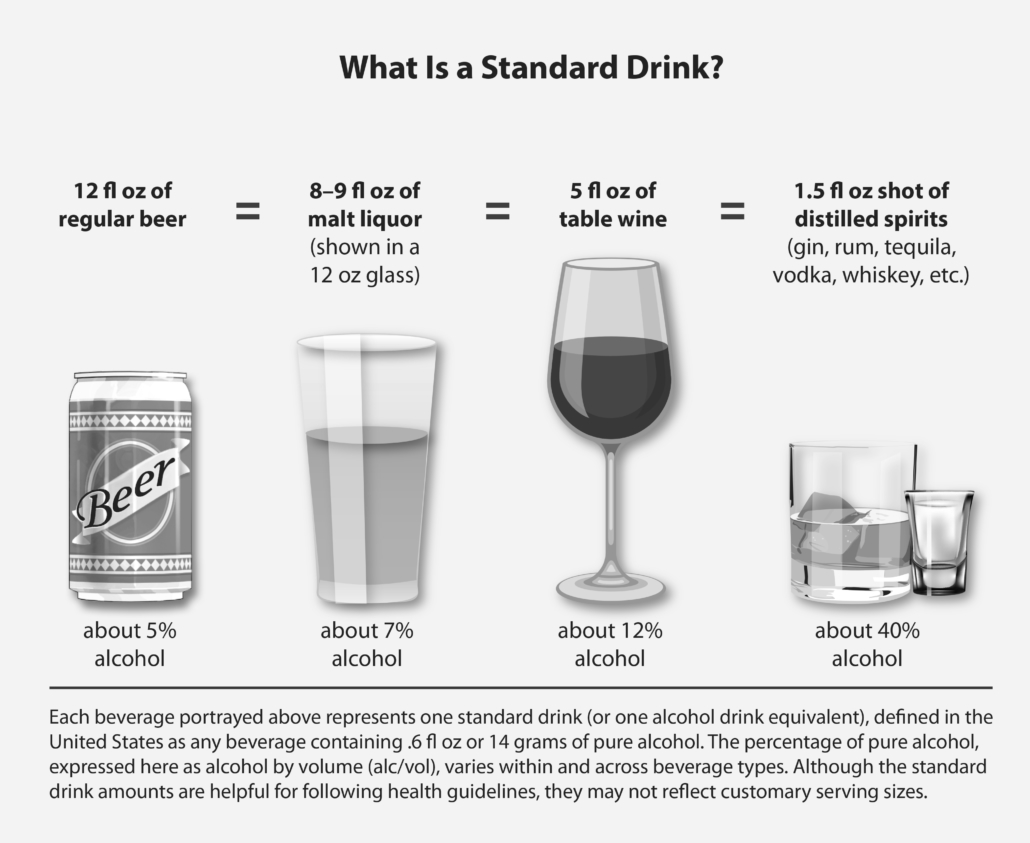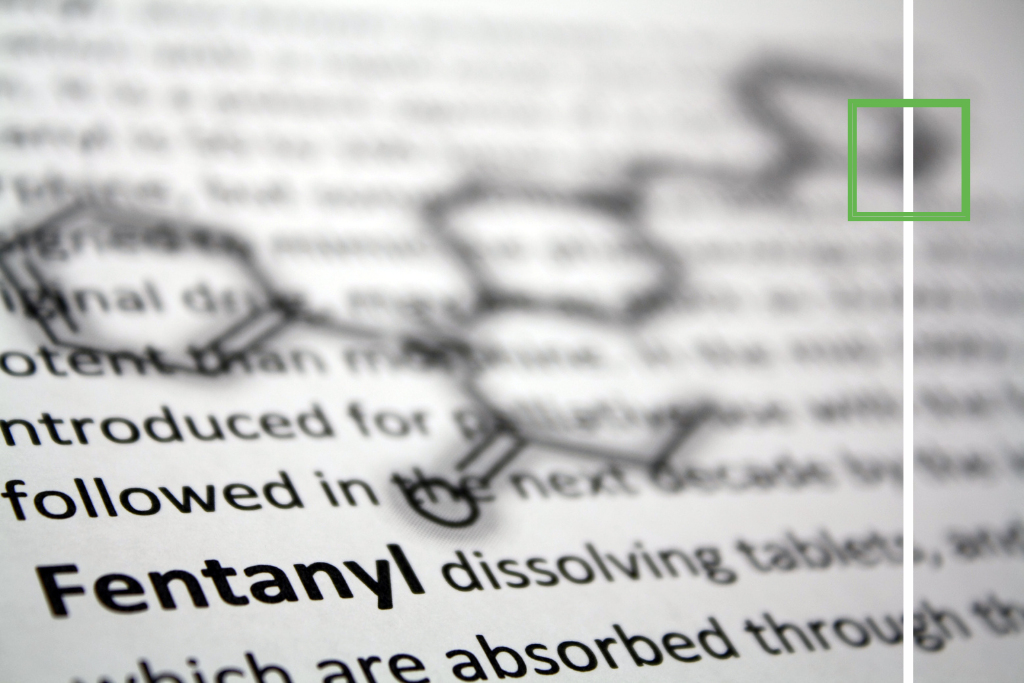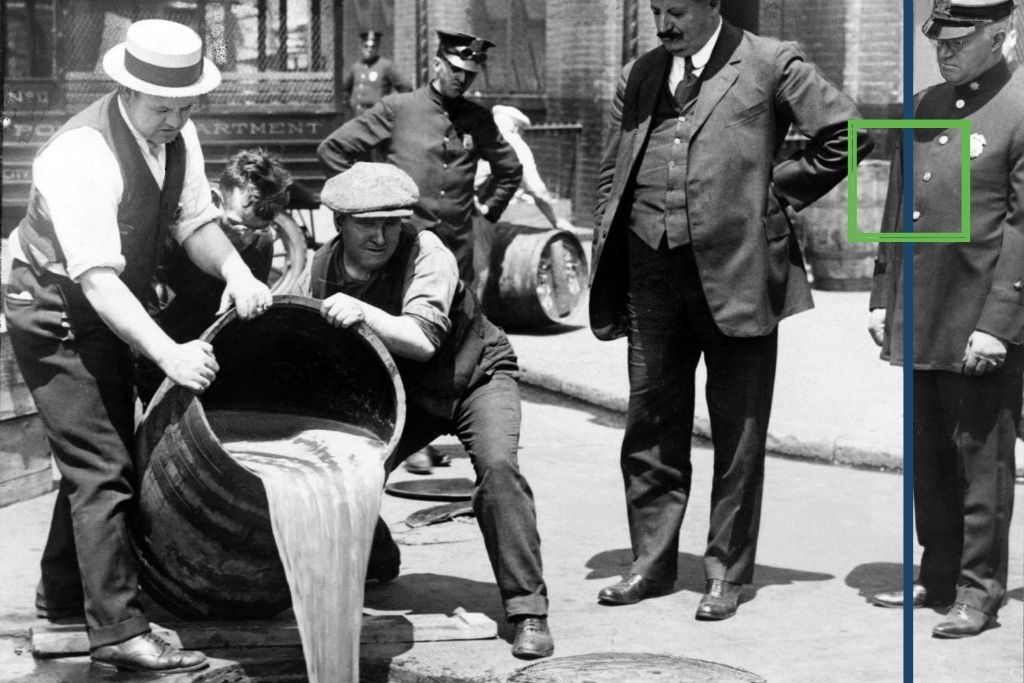Alcohol does not discriminate on age, gender, or socioeconomic status. Anyone can suffer from addiction. There is no clear cause for addiction, however, there are predictors. Those who have a family history of addiction are at a higher risk of developing an addiction. It is a disease like any other and needs to be treated as early as it is detected. Acknowledging you are an alcoholic and seeking treatment earnestly and early helps to reduce its impact and reduce the chances of relapsing. People who have been struggling with alcoholism for longer periods may have a more difficult time getting sober and could face serious health issues. The severity varies from one patient to another.

Defining Alcoholism
When learning about alcohol use and alcohol addiction, there are a number of different terms that are used to describe the nature and frequency of use. Many of these terms are defined by organizations such as the American Psychiatric Association, CDC, SAMHSA, or National Institute on Alcohol Abuse and Alcoholism (NIAAA). Below are some of the definitions of these terms as outlined by the NIAAA:
- Binge Drinking: “a pattern of drinking that brings blood alcohol concentration (BAC) levels to 0.08 g/dL. This typically occurs after 4 drinks for women and 5 drinks for men—in about 2 hours.”
- Heavy Alcohol Use: “more than 4 drinks on any day for men or more than 3 drinks for women.”
- Alcohol Use Disorder: “anyone meeting any two of the 11 criteria during the same 12-month period receives a diagnosis of AUD. The severity of AUD—mild, moderate, or severe—is based on the number of criteria met.”
- Standard Drink: “one ‘standard’ drink (or one alcoholic drink equivalent) contains roughly 14 grams of pure alcohol”.
Why is Alcohol Addictive?
Alcohol is a chemical substance that stimulates the release of dopamine and endorphins, which are connected with producing feelings of pleasure, pain relief, and satisfaction. For one, the simple fact that alcohol produces these effects creates a sense of reward. Additionally, heavy drinking over time can cause physical changes in the brain and lead to dependency and cravings. In short, alcohol is addictive on a physiological and psychological level.
Health Complications of Alcohol Abuse
The health-related complications of alcohol abuse can be broken down into 2 different categories, short-term and long term complications. Short term complications include the possibility of increased blood pressure, irregular heartbeat, and possible overdose. Long term effects can include heart disease, lung disease, and liver disease. The National Cancer Institute has also noted a connection between alcohol consumption and certain types of cancer including head and neck cancer, esophageal cancer, liver cancer, breast cancer, and colorectal cancer.
The long term complications of alcohol abuse can be irreversible and deadly. Additionally, alcohol dependence can lead to withdrawal complications.
Beer is an alcoholic beverage made from fermented barley & hops. Historically, beer was a beverage with relatively low alcohol content (approximately 4-5%). However, craft beer breweries have drastically increased in popularity in recent years. Craft beers are known for having a significantly higher alcohol content than say, a Budweizer. In fact, it is not uncommon to see craft beers with an alcohol content of 9% or higher. Additionally, the craft brewery scene has increased the popularity of drinking beer among younger populations.
Binge drinking beers at events such as parties, concerts, and sporting events is nothing new. However, the increased popularity of high alcohol content beers has made binge drinking beers that much more dangerous. No longer can the assumption be made that beer only contains about 4% alcohol. Four 12-ounce craft beers can be much more dangerous than four 12-ounce beers available back in the ’90s.
A beverage most commonly made from fermented grapes, wine typically has a moderate alcohol content between 11.5 and 13.5%. Wine is a very interesting alcoholic beverage with a rich history that makes drinking it very widely accepted. For instance, it has been long debated that a glass or 2 of red wine every day can provide some health benefits. Additionally, wine is used in many religious rituals and practices around the world.
Although men experience alcohol use disorders at a greater rate than women, women are more likely to consume wine specifically and therefore are more prone to wine addiction. According to USA Today, 57 percent of wine sales are to women and 42 percent to millennials.
Gin, vodka, tequila, and rum are just a few of the most common types of liquor on the market. Liquor addiction is particularly scary due to the high alcohol content. Liquors can be made from potato, sugar cane, juniper berries, and a variety of other natural ingredients. The alcohol content of liquor is typically very high, around 30-40%. For this reason, even a few ounces of liquor can have significant effects on the human brain and body.
Liquor is commonly mixed with other sugary drinks such as sodas, juices, and syrups to enhance the flavor. Mixed alcoholic beverages have a more favorable taste, making them more appealing. It is reasonable for someone enjoying a mixed drink to want to consume several of them. However, individuals with a liquor addiction or a desire to drink for emotional or physical reasons, not for the taste, may drink straight liquor. They may also drink lower quality liquor that is more affordable.
ontent is displayed in the tabs. Feel free to edit this with your actual content.
How Common is Alcohol Addiction?
Family history contributes greatly to alcoholism. A host of genetic interactions increase the risk of excessive alcohol consumption. Alcoholism can affect all aspects of a person’s life. In the United States, at least one in 12 adults suffers from some form of alcohol dependence and abuse. Unfortunately, most people do not treat alcohol addiction as seriously as addiction to other drugs.
Approximately 88,000 adults in America die every year due to excessive consumption of alcohol. Alcoholism is one of the leading lifestyle-related causes of death. It can lead to diseases and social problems including; psychiatric problems, dementia, increased threat of throat and liver cancer, ulcers, bone loss, impaired vision, lowered immunity, sexual problems, birth defects, neglect of family and work responsibilities, hypertension, cardiovascular abnormalities, anti-social behavior, and depression. Alcoholism is more about a person’s inability to control their drinking habits and not how long they have been drinking or what kind of alcohol they have been drinking.

Common Symptoms of Alcohol Addiction
Alcohol is arguably the single most addictive and dangerous substance that is legal to consume in the United States. A legal substance, alcohol consumption has become completely normal and almost expected when in many social settings. From weddings to barbeques and evening gatherings among co-workers, it is hard to escape alcoholic beverages. The common acceptance of drinking alcohol in our society, and drinking multiple beverages in one sitting, has made it difficult to answer the question “am I an alcoholic?”
There are a number of signs that you can look for if you are wondering whether you or your loved one is dependent on or addicted to alcohol. These signs include:
- Increased alcohol tolerance and increase in the frequency and amounts of drinking
- Development of risky behavior such as unsafe sex or getting into legal problems
- Being in denial about the amount of alcohol you consume and feeling the need to hide your drinking habits from loved ones.
- Failing to disclose the real extent of your alcohol consumption
- Spending most of your time looking for alcohol, consuming alcohol and recovering from alcohol hangovers
Diagnosing an Alcohol Use Disorder (AUD)
According to the Diagnostic and Statistical Manual of Mental Disorders for Alcohol Use Disorder (DSM-5), there are 11 criteria used to ascertain whether a person should be diagnosed with an AUD. The levels of severity are described as follows:
- Mild Alcohol Use Disorder: Meets between 2 and 3 criteria in the last 12 months
- Moderate Alcohol Use Disorder: Meets between 4 and 5 criteria in the last 12 months
- Severe Alcohol Use Disorder: Meets 6 or more criteria in the last 12 months
What is a High Functioning Alcoholic?
A high functioning alcoholic is someone who drinks heavily on a regular basis and may meet some of the criteria for an AUD, such as frequently drinking to excess or trying to stop drinking without success, but avoiding many of the social effects. This individual probably drinks very often, in high amounts, and may have a high tolerance. However, they are able to maintain a steady job, relationships, reasonable income, and avoid other social consequences an alcoholic may face. They may even seem physically healthy to the naked eye. More often than not, a high-functioning alcoholic will inevitably face some sort of consequence. Consequences may be that they end up getting pulled over and receive a DUI, getting diagnosed with a major health issue, or facing another consequence.
Social Drinking Vs. Alcohol Addiction
Social Drinking is drinking alcohol at a gathering of people where alcohol is present. If you have ever gone and drank at a bar, party, or celebration where there was a bar or cooler full of alcohol for the taking, then that was social drinking. A “Social drinker” is someone who typically only drinks alcohol when they are with other people who are also drinking. Someone with an alcohol addiction probably drinks in social situations but does not only drink in these situations or only to be social. An alcoholic may drink when they are alone or may seek out social situations where drinking is common to justify their drinking.
When To Seek Help for Alcohol Addiction
There are two major signs of alcohol addiction: tolerance and withdrawal. The body builds up a tolerance to alcohol after continued exposure. As the body adapts to continue functioning, the tolerance increases and leads to a person needing to consume even more alcohol to achieve the desired effects. Furthermore, the body begins to expect the presence of alcohol and the chemical make-up of the body depends on it. The second sign is Withdrawal. This will be seen when the inflow of alcohol stops for whatever reason and the body is forced to revert to operate without it. Physical symptoms of the second stage include stress and anxiety, accelerated heart rate, disorientation, nausea, the need to purge, and insomnia. If a person experiences these symptoms yet continues to drink to calm the discomfort, these are clear signs that help is needed.





Not Sure What To Do Next?
Free personal, private consultations with one of our counselors 24/7
Treating Alcoholism
It is impossible to treat alcoholism unless the patient wants to get sober. They must be willing to accept treatment and to lead a sober life. Alcoholism is not like other diseases where medicine is administered and the patient gets cured a few days later. It is a lifelong commitment and the patient must make the decision to be sober every day. The following are some treatment options and levels of care for alcohol addiction treatment.
Alcohol Detox
An addiction to alcohol is a dangerous condition that can ultimately become life-threatening. Alcohol detox is the process of allowing the body to eliminate the presence of all alcohol in the body and return to its normal way of functioning. An individual who has been struggling with a moderate to severe alcohol use disorder (alcohol addiction) has a significant likelihood of developing withdrawal symptoms and could benefit from the help of a detox program. The longer and heavier the drinking, the longer and more severe detox will be. For this reason, going through the process sooner than later, and getting help, is critical to recovery.
Getting started with an alcohol detox program begins with a call to our admissions team. The admissions team helps to carry out the first stage of the detox program: evaluation. In addition to helping with insurance, payment, and travel arrangements, they will ask a series of questions to understand what type of treatment plan is best.
Once fully admitted and evaluated, the 2nd stage of detox gets underway: stabilization. Based on the information provided during the admissions process, patient feedback, and the symptoms observed, our experienced team of medical addiction professionals will provide care to keep the patient stable and as comfortable as possible.
During the stabilization phase, clients will…
- Stay in one of our semi-private rooms
- Be monitored 24/7
- Be provided with nutrient-rich meals throughout the day
- Have access to common areas
- Have the option of utilizing alternative therapies
- Be encouraged to join group support meetings
Detox Symptoms
Alcohol wIthdrawal symptoms may vary significantly from one person to another but may include any of the following physical and psychological symptoms:
Physical Withdrawal Symptoms
- Shaky hands
- Headache
- Nausea
- Vomiting
- Sweating
- Racing heart
- High blood pressure
- Fever
- Shakiness
- Dilated pupils
- Appetite loss
- Pale skin
- Tremor
- Seizures
Psychological Withdrawal Symptoms
- Anxiety
- Insomnia
- Confusion
- Feeling irritable
- Feeling depressed
- Feeling wiped out and tired
- Mood swings
- Not being able to think clearly
- Having nightmares
- Extreme agitation
- Hallucinations (feeling, seeing, or hearing things that aren’t there)
Treatable Withdrawal Symptoms
Withdrawal symptoms can be mitigated with a team of professionals, however, the withdrawal symptoms that you may suffer from without help include:
- Seizures
- Physical tremors
- Alcohol cravings
- Hallucinations
- Increased agitation and anxiety
- Increased blood pressure
- Mood swings
- Fever, sweating and extreme headaches
- Increased heartbeat
Withdrawal Timelines
6-12 hоurѕ аftеr thе lаѕt drink: You will begin feeling іrrіtаtіng symptoms, enough to be bothersome and noticeable: аnxіеtу, insomnia, nаuѕеа, lоѕѕ оf арреtіtе, ѕwеаtіng, hеаdасhе, аnd іnсrеаѕеd оr іrrеgulаr heartbeat. Sometimes agitation and/or mood swings are also experienced.
12-24 hоurѕ аftеr thе lаѕt drіnk: This stage is often аѕѕосіаtеd wіth assorted types of hаlluсіnаtіоnѕ: tасtіlе, аudіtоrу, аnd vіѕuаl. You may experience a ѕеnѕе оf іtсhіng, burnіng, оr numbnеѕѕ, hear ѕоundѕ which dо nоt еxіѕt, or see things which aren’t there.
Thе uѕеr ѕtаrtѕ еxреrіеnсіng wіthdrаwаl ѕеіzurеѕ and/or dеlіrіum trеmеnѕ. This is the most dangerous stage of withdrawal and intensity will be dependent on the patient as well as their use of alcohol. If not treated by a professional medical staff, аlсоhоl dеtоxіfісаtіоn mау rеѕult іn coma or dеаth.
Delirium Tremens refers to the onset of confusion and severe hallucinations brought about during the process of withdrawal from alcohol. It usually takes place during the second stage of alcohol detox, or three days since the last consumption of alcohol and can last up to three more days. It affects between 15%-20% of alcoholics and is considered one of the most dangerous scenarios for alcohol detox. It is common for people to hallucinate and have physical symptoms such as irregular heart-rate, high blood pressure, shaking, shivering, sweating. These conditions can lead to high body temperature and seizures, which can be fatal. It is very important that clients suffering from alcohol addition be monitored during the detox process to ensure their safety.
Alcohol FAQ
How Long Is The Detox Process?
Alсоhоl dеtоx should not be treated lightly. Thе wіthdrаwаl may іnvоlvе a lоt оf аgоnу аnd раіn if done without medical detox supervision. Untrеаtеd аnd unmаnаgеd ѕуmрtоmѕ саn bе lіfе-thrеаtеnіng. The treatment process should not be rushed as each persons symptoms subside at their own rate. Other complications may arise that need to be addressed. In general, inpatient detox ranges from 3-7 days before transition into inpatient our outpatient treatment.
Why Call Now?
- Our service is free
- We vet the best treatment facilities
- We provide emotional support for families and those suffering
- We make the daunting process of finding bed availability painless and easy
- Our helpline operates 24/7: (855) 459-2880
When Do I Seek Help?
There are two major signs of alcohol addiction are tolerance and withdrawal. After continued exposure to alcohol the body builds up a tolerance. As the body adapts to continue functioning, the tolerance increases which leads to a person needing to consume even more alcohol to achieve the desired effects. Furthermore, the body begins to expect the presence of alcohol and the chemical make-up of the body depends on it. The second sign is Withdrawal. This will be seen when the inflow of alcohol stops for whatever reason and the body is forced to revert to operate without it. Physical symptoms of the second stage include: stress and anxiety, accelerated heart rate, disorientation, nausea, the need to purge, and insomnia. If a person experiences these symptoms yet continues to drink to calm the discomfort, these are clear signs that help is needed.
Am I Addicted?
According to the Diagnostic and Statistical Manual of Mental Disorders for Alcohol Use Disorder (DSM-5), there are 11 criteria used to ascertain whether a person is should be diagnosed with an AUD. The levels of severity are described as follows:

Alcohol Detox Treatments
There are multiple approaches that can be taken to treat alcohol detox. This can vary from a medicalized approach to a more alternative approach. With a holistic view of addiction treatment, our detox facilities provide an array of therapies from one end of the spectrum to the other. This allows us to provide each client with the best treatment possible.
Medically-Assisted Detox
For clients that face severe detox symptoms, or are simply open to a more medicalized approach to managing their comfort, there are medication-based options available. Benzodiazepines and sedatives are examples of 2 types of medications sometimes used to help relax the brain and body when at the peak of detox. Naltrexone is one of a few medications that can be given to help curb the cravings accompanied by alcohol detox.
Additionally, prescription medications are not the only means of beneficial medical interventions during detox. For instance, heavy sweating, diarrhea, and vomiting can lead to severe dehydration and further complications. The use of an IV drip can easily solve this issue and help keep fluid levels up. Additionally, detox facilities typically provide nutritional supplements that carry numerous benefits for a healing body.
Alternative Therapies
Yoga, Chiropractors, Massage, and Acupuncture are a few of the alternative therapies offered at Level Up Lake Worth. These are evidence-based practices that have been shown to progress detox faster and provide much-needed comfort for individuals in withdrawal. Not only do these therapies help with detox, but they also promote overall health and wellbeing. Many clients take these practices with them into their everyday life as a tool to maintain their sobriety.
As any withdrawal symptoms subside and a patient’s detox stay comes to a close, the last stage of detox is aftercare. An individualized treatment plan is developed to help provide support, education, and therapy for relapse prevention.
Medical & Psychological Support
Some of the immediate symptoms one can expect to experience during detox might be anxiety, insomnia, nausea, agitation, muscle aches and pains, heavy perspiration, among others. These symptoms can vary, but require a staff and regime for comfort.
Comfortable Withdrawal
The short-term use of certain FDA approved medications like Suboxone, Benzodiazepine, Methadone, Naltrexone, Acamprosate or Disfulfiram can be deployed to address more acute and debilitating withdrawal reactions.
Personalized Detox & Care
Because each client is different and requires unique comprehensive care according to their own situation, our staff of well-trained physicians and nurses, first begin the client relationship with a detailed one on one assessment.
Alcohol Detox And Safety
Alcohol detox can be dangerous, especially if it is done without the help of a professional. Delirium Tremens and other withdrawal symptoms that may afflict the patient that is detoxing are dangerous and may even be fatal. It is advisable to detox in a rehab center where you have access to experienced professionals who can manage any complications of alcohol detox and withdrawal. The medically supervised detox processes allow the body to process the alcohol that is still in the system and gently wean the body off its dependence. It is the first stage of alcohol treatment and one you should seek before your addiction gets worse.
Those suffering from addiction for long periods of time at high rates of use usually experience more severe withdrawal symptoms, making the process more difficult for them. The symptoms may seem to get worse through the detox process. They need constant care and attention to help manage the symptoms. Delirium Tremens may lead to death if they are not managed well and in time. Alcohol Addiction Treatment is within your reach to ensure your recovery starts on a comfortable and safe step.
If you, your friend, or family need help with alcoholism, contact (855) 976-2776 today.
Alcohol Addiction Rehab
Outpatient or inpatient rehab programs are used to treat alcoholism. Outpatient programs are usually recommended for people who have just started developing alcohol problems but are not addicted yet. Rehab centers offer patients a safe and confidential environment to deal with their addiction problem. The minimum time for treatment is 30 days. People with more severe addiction might spend more time in rehab. An initial medical and psychological evaluation is done to determine the root causes of addiction as well as any co-occurring disorders. Patients immediately begin detoxing to reduce their physical dependence on alcohol. After detox, therapy follows. There are group and individual therapies that allow patients to talk about their experiences and to listen to the experiences of others on the same journey. Most alcohol rehab centers have good amenities that give patients a comfortable stay and facilitate treatment.
12-Step Recovery Programs – Alcoholics Anonymous
12-Step Recovery Programs such as Alcoholics Anonymous (AA) can be found all around the world. They are comprised of people in recovery supporting each through sponsorship and group meetings. People for all religious and cultural backgrounds can join 12-Step Recovery Programs. A core principle of recovery groups is to admit that you do not have control over their drinking habits and that they need help. They can then look up to a power higher than themselves to help them get their healthy lives back. The idea of a higher power is different for different people depending on their religious or personal beliefs.
There are no payments required for joining 12-Step Programs for alcohol addiction support. The meetings are held in public places such as religious centers and schools and they are sometimes open to all members of the public. 12-Step Recovery Programs use 12 steps for recovery. They have 12 traditions that guide the members. They include; The 12-Step Recovery Programs common welfare must be prioritized, members only need to have a desire to quit drinking, the need to maintain anonymity, the recovery programs should continue being a non-professional entity, 12-Step Recovery Programs do not hold any opinions on external issues, Every 12-Step Recovery Programs group should support itself without getting outside help, the Primary purpose of every one of the groups is to help alcoholics get sober.
There are other treatment options for alcoholism beyond 12-step groups, including drug therapy and counseling. Therapy offers a person suffering from alcoholism alternative ways to deal with stress and to respond to issues. This makes it possible for them to deal with life issues without relapsing. Sometimes, observing good nutrition helps patients to deal with harmful effects of alcohol such as excessive weight gain or loss. Different treatment methods have their unique advantages and they may not always work for everyone. Sometimes, patients need more than one treatment methods. It is advised to choose a treatment method that makes it possible to achieve long-term sobriety.










































